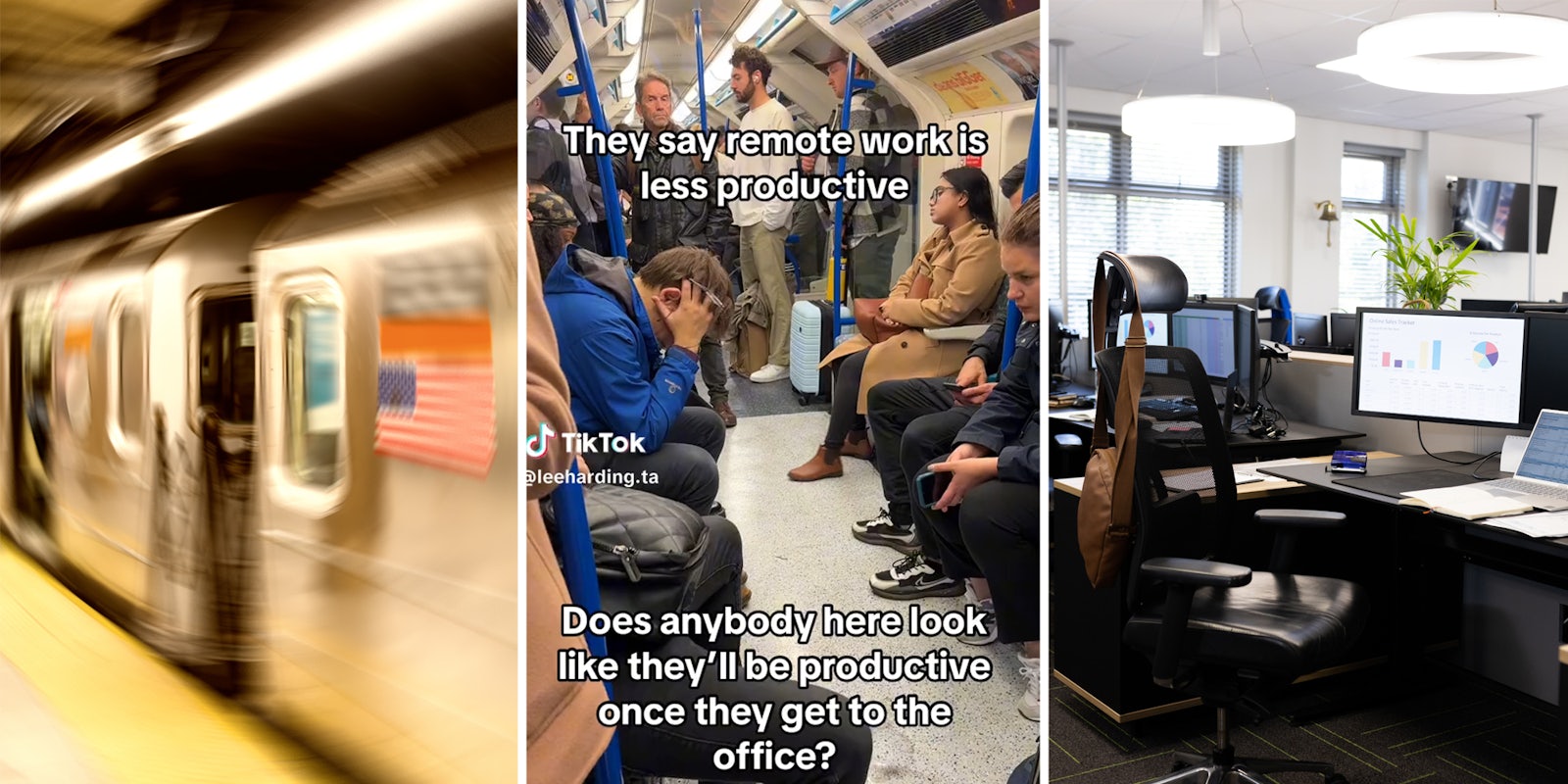A viral video shows commuters on their way to work looking exhausted on public transit.
In a TikTok posted on Monday, Lee Harding (@leeharding.ta) captured a video of train car full of commuters, all of whom are visibly tired. One man has his head in his hands, and one woman looks to be resting her head on the train’s wall. Harding says that he thinks that the commuter’s exhaustion will affect their work performance.
“They say remote work is less productive,” Harding wrote in his video’s overlay text. “Does anybody here look like they’ll be productive once they get to the office?”
On Wednesday, Harding’s video had over 2.5 million views on TikTok.
@leeharding.ta Is going to the office really more productive? #remotework #workfromhome #wfh #officelife #corporatelife #corporatetiktok ♬ original sound – Lee Harding
Survey data from Future Forum and Harvard Business School is in line with Harding’s point: Employees value the flexibility to work from home rather and say it makes them more productive. Plus, working remotely automatically grants accommodations to employees who need them.
But make no mistake, working from home can have its downsides, too. Remote workers report that their at-home jobs are still draining—and they’re feeling the affects of less social interaction.
Many commenters on Harding’s video agreed that working in person is difficult on employees.
“Underpaid and expected to give their all,” one commenter wrote.
“Literally everyone is dissociated,” another said. “It’s wild.”
“We’re all so burnt out here,” a commenter wrote. “It’s crazy.”
Others mentioned frustrating coincidences that can occur when you’re mandated to work in the office: Your coworkers might still be working from home.
“Probably on their way to the office to join a Teams call,” a commenter said.
“Upper management: ‘So glad to see everyone back at the office,” a commenter wrote. “If you need me I’ll be working from home the rest of the week.’”
And some think that employers ask employees to work in office to have more control over them.
“It’s about control,” a commenter said. “Always has been.”
The Daily Dot has reached out to Harding via X.



